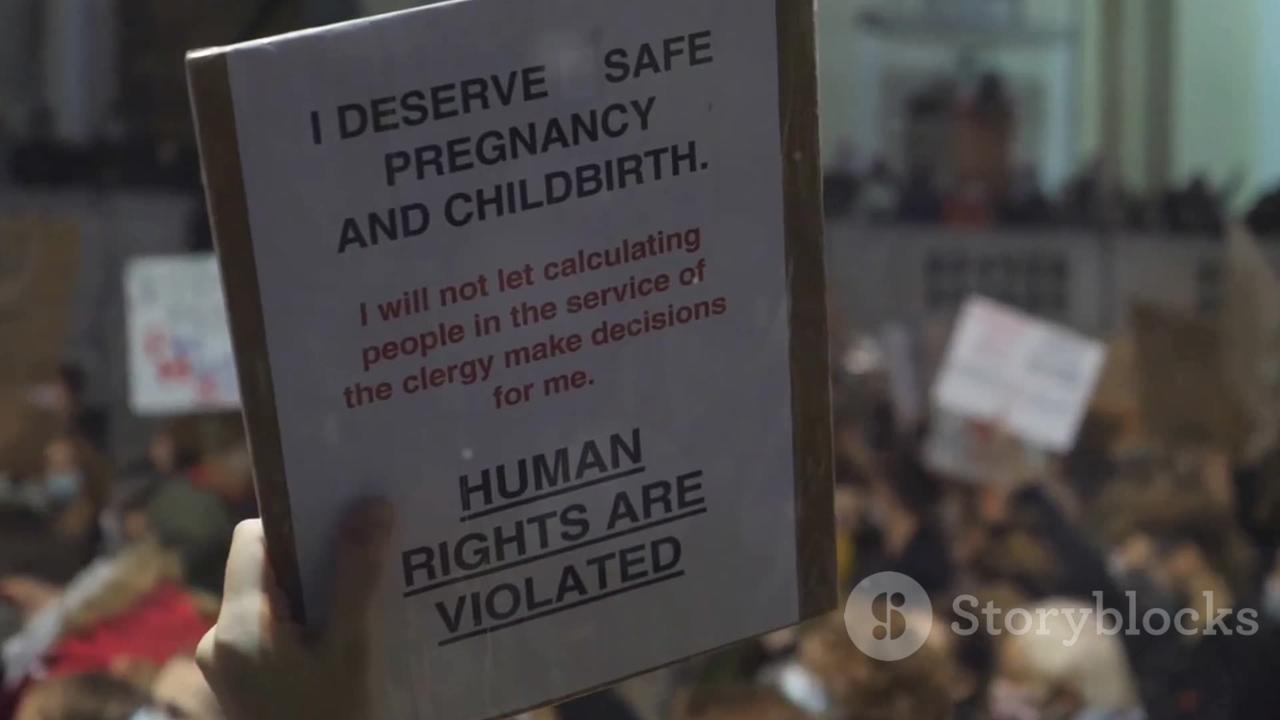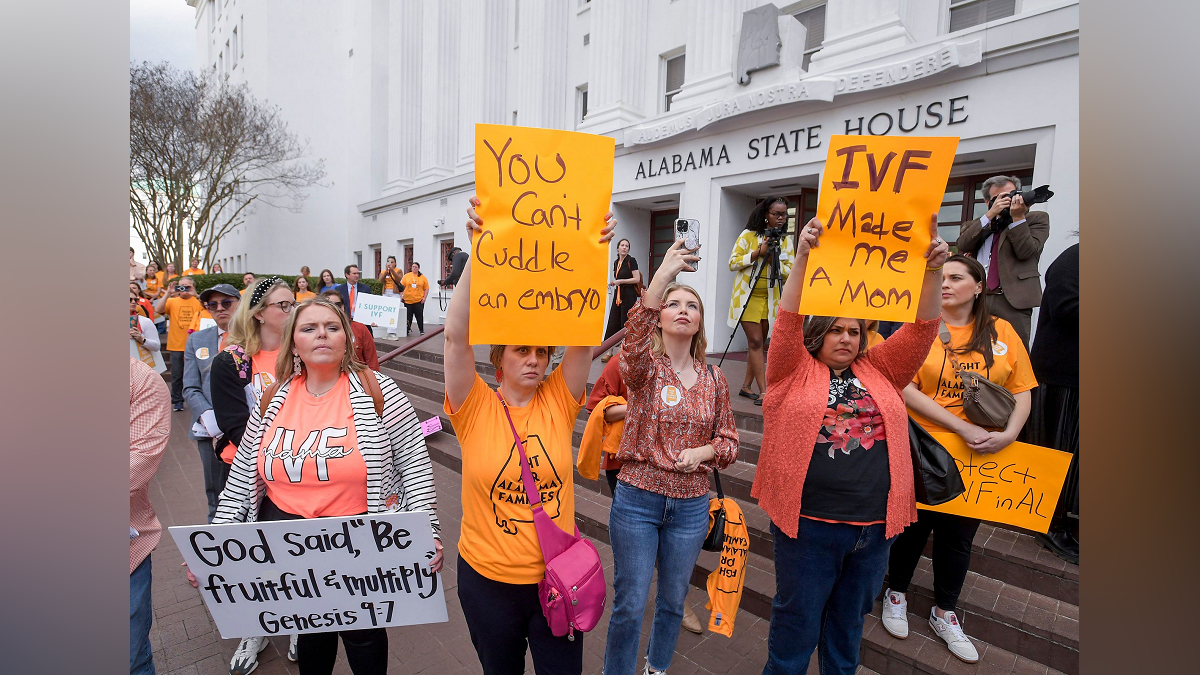
Does Insurance Cover IVF? Everything You Need to Know
March 28, 2025
The Alabama IVF Bill: What You Need to Know About This Game-Changing Law
March 28, 2025The Alabama IVF Bill: What You Need to Know About This Game-Changing Law
In early 2024, Alabama found itself at the center of a national conversation about fertility treatments. A surprising court ruling shook up the world of in vitro fertilization (IVF), leaving families, doctors, and lawmakers scrambling for answers. By March, Alabama’s governor signed a new law—the Alabama IVF Bill—that aimed to fix the chaos and protect IVF access. But what does this bill really mean for everyday people? How did it come about, and what’s still left unanswered? Let’s dive into the details, uncover some lesser-known facts, and explore what this could mean for you or someone you know.
This article isn’t just a recap—it’s your go-to guide for understanding the Alabama IVF Bill inside and out. We’ll break down the drama behind it, share stories you won’t find everywhere else, and give you practical tips if you’re navigating fertility challenges. Plus, we’ll dig into fresh research and hidden angles that other articles might have missed. Ready? Let’s get started.
The Backstory: How Alabama’s IVF Crisis Began
Imagine you’re in the middle of planning your dream family. You’ve been working with a fertility clinic, maybe even have embryos frozen, ready for the next step. Then, out of nowhere, the clinic calls and says, “We’re pausing everything.” That’s exactly what happened to hundreds of families in Alabama in February 2024.
What Sparked the Chaos?
It all started with a bombshell ruling from the Alabama Supreme Court. On February 16, 2024, the court decided that frozen embryos—those tiny clusters of cells created during IVF—are legally “children” under state law. This came from a lawsuit where a patient accidentally destroyed some embryos at a clinic in Mobile. The couples affected sued, claiming wrongful death, and the court agreed they had a case.
Suddenly, clinics freaked out. If embryos were “children,” could doctors or staff be sued—or even jailed—for accidentally damaging one? Three major IVF providers in Alabama hit pause on their services, leaving patients in limbo.
The Public’s Reaction
People were mad. Moms-to-be rallied outside the Alabama Statehouse, holding signs like “I’m Here Because of IVF.” Social media exploded with stories—think heartbroken couples who’d spent years and thousands of dollars, only to have their hopes dashed overnight. One woman, Gabby Goidel, even had to rush to Texas to finish her IVF cycle because Alabama clinics shut down just days before her egg retrieval.
This wasn’t just a local issue—it went national. Even former President Donald Trump weighed in, saying he supported IVF and urging Alabama to fix it fast. The pressure was on.
The Alabama IVF Bill: What It Does (and Doesn’t Do)
Fast forward to March 6, 2024. Alabama lawmakers raced to pass a fix, and Governor Kay Ivey signed the Alabama IVF Bill—officially Senate Bill 159 (SB 159)—into law that night. So, what’s in it?
The Core Idea: Protection for IVF
The bill’s big promise is immunity. It shields doctors, clinics, and even patients from lawsuits or criminal charges if an embryo is damaged or destroyed during IVF. Here’s the gist:
- Civil immunity: No one can sue you for accidentally harming an embryo.
- Criminal immunity: You won’t face jail time, either.
- Retroactive coverage: It applies to past incidents (except ongoing lawsuits).
Within hours, clinics like the University of Alabama at Birmingham (UAB) and Alabama Fertility said, “We’re back in business!” Patients breathed a sigh of relief as embryo transfers restarted the next day.
What It Doesn’t Address
Here’s where it gets tricky. The bill doesn’t answer the big question: Are frozen embryos legally “children”? The Supreme Court said yes, but SB 159 sidesteps that entirely. It’s like putting a Band-Aid on a broken leg—it helps for now, but the deeper problem’s still there.
- ❌ No clarity on embryo “personhood.”
- ❌ No rules for what happens to unused embryos.
- ✔️ Limited protection for companies making IVF equipment (they can still face some lawsuits).
Dr. Mamie McLean, a fertility specialist at Alabama Fertility, told reporters, “This gets us back to work, but we’ll need more science-based laws down the road.” She’s hinting at what many experts fear: this is a short-term patch, not a long-term solution.
Behind the Scenes: The People Who Made It Happen
You’ve heard about the bill, but what about the folks who fought for it? Let’s pull back the curtain on the real-life heroes—and a few skeptics—who shaped this law.
The Advocates
- Corinn O’Brien: A Birmingham mom pregnant through IVF, Corinn organized a 300-person rally at the Statehouse. She’s not just a fighter—she’s a baker who brought cookies to lawmakers, sweetening the deal (literally). “I couldn’t sit by while families suffered,” she said in an interview.
- Dr. Janet Bouknight: This Alabama Fertility doctor was everywhere—lobbying, rallying, and reassuring patients. Fun fact: she’s a marathon runner who says IVF advocacy is her toughest race yet.
The Lawmakers
- Senator Tim Melson: A Republican doctor, Melson sponsored SB 159. He’s a bit of a foodie—rumor has it he bonded with colleagues over BBQ ribs while drafting the bill.
- Rep. Terri Collins: She carried the bill in the House. Known for her pro-life stance, she’s also a grandma who knits baby blankets—ironic, given the IVF debate.
The Doubters
Not everyone cheered. Senator Larry Stutts, an OB-GYN, was the lone “no” vote in the Senate. He argued the bill protects clinics more than patients and limits moms’ rights to sue if something goes wrong. Fun tidbit: Stutts collects vintage medical tools—maybe he’s stuck in the past?

How the Alabama IVF Bill Affects You
Wondering how this law might touch your life—or someone you love? Let’s break it down with real-world scenarios.
If You’re Trying IVF in Alabama
Good news: clinics are open again! You can move forward with egg retrievals, embryo transfers, or freezing. But here’s what to watch out for:
- Cost Check: Some worry clinics might hike prices to offset legal risks. Ask upfront about fees.
- Embryo Questions: What happens to extras? The bill doesn’t say, so talk to your doctor about storage or donation options.
Practical Tip: Keep a folder with all your IVF paperwork—contracts, consents, costs. If legal issues pop up later, you’ll be ready.
If You’re Outside Alabama
This could still matter. Other states might copy Alabama’s “embryo as children” idea, especially post-Roe v. Wade. A 2024 Axios-Ipsos poll found 66% of Americans don’t see frozen embryos as people, but laws could shift anyway.
Action Step: Check your state’s IVF laws. Websites like RESOLVE (resolve.org) track fertility legislation nationwide.
If You’re Just Curious
Maybe you’re not planning a family, but you’re hooked on the drama. This bill shows how fast laws can change—and how they affect real people. It’s a peek into the messy mix of science, ethics, and politics.
The Science Behind IVF: What’s Really Happening?
IVF isn’t magic—it’s science with a dash of hope. Let’s unpack how it works and why this bill matters to the process.
IVF 101
Here’s the basic rundown:
- Stimulation: Meds boost your ovaries to make lots of eggs.
- Retrieval: Doctors grab those eggs with a tiny needle.
- Fertilization: Eggs meet sperm in a lab dish—hello, embryos!
- Transfer: One (or more) embryos go into the uterus.
- Freezing: Extras get stored in liquid nitrogen at -196°C.
About 2% of U.S. babies start this way—over 80,000 a year, per the CDC.
Why Embryos Are Tricky
Embryos aren’t babies yet—they’re microscopic, with 8-10 cells at first. But not all make it. Some have genetic glitches, others don’t implant. Clinics often discard them, which is why the “embryos are children” ruling freaked everyone out.
A 2023 study in Fertility and Sterility found that 30-40% of frozen embryos don’t survive thawing. That’s normal—but in Alabama, it could’ve meant legal trouble pre-SB 159.
Cool Fact
Ever wonder who’s behind IVF breakthroughs? Dr. Robert Edwards won a Nobel Prize in 2010 for inventing it. He was a sci-fi buff who loved “Star Trek”—maybe that’s where he got the idea to beam life into labs!
The Big Debate: Are Embryos “Children”?
This is the heart of the Alabama IVF mess—and it’s a question with no easy answer. Let’s explore both sides.
Team “Yes”
- Argument: Life begins at conception (when sperm meets egg). Alabama’s 2018 constitutional amendment says unborn kids have rights, so embryos count.
- Supporters: Anti-abortion groups and some religious folks. The Supreme Court’s Chief Justice even quoted the Bible in his ruling.
- Weird Twist: If embryos are kids, could you claim them as dependents on your taxes? (Spoiler: Not yet, but it’s been floated!)
Team “No”
- Argument: Embryos aren’t viable outside a womb—they’re potential, not people. Calling them “children” messes up IVF and science.
- Supporters: Doctors, patients, and groups like RESOLVE. They say it’s about helping families, not ending lives.
- Fun Fact: In some countries, like Sweden, embryos aren’t “people” until 14 days post-fertilization. Alabama’s rule is way stricter.
What Experts Say
Dr. Barbara Collura, head of RESOLVE, told NPR, “This bill helps, but it’s not enough. We need laws that reflect science, not just feelings.” She’s pushing for clearer rules nationwide.

What’s Missing? The Holes in the Alabama IVF Bill
SB 159 got clinics running again, but it’s not perfect. Here’s what’s still fuzzy—and why it matters.
The “Personhood” Puzzle
By not defining embryos’ status, the bill leaves a legal gray zone. Could someone sue later, claiming an embryo’s “rights” were violated? Lawyers are already testing this—one filed a second wrongful death case in Mobile post-bill.
Fix Idea: A new law saying embryos outside a uterus aren’t “children.” Democrats tried this, but Republicans shot it down.
Unused Embryos
Couples often have leftover embryos. Options include:
- Freeze forever (pricey—$500-$1,000/year).
- Donate to research or other couples.
- Discard (standard practice, but now dicey in Alabama).
The bill’s silent on this. A 2024 Human Reproduction study says 60% of IVF patients struggle with these choices—Alabama’s mess makes it worse.
Tip: Ask your clinic for a detailed embryo plan upfront. Write down what you want—it could save headaches later.
Equipment Makers
Companies supplying IVF gear (like embryo storage tanks) only got criminal immunity, not civil. If their stuff fails, they could still be sued. This might spook manufacturers, raising costs for clinics—and you.
Real Stories: How the IVF Bill Changed Lives
Laws aren’t just words—they’re people’s futures. Here are two tales from Alabama that show the bill’s impact.
Meghan’s Miracle
Meghan Cole, from Birmingham, can’t carry a baby due to a blood disorder. She and her husband lined up a surrogate for their IVF embryo—then the clinic paused mid-cycle. “I was devastated,” she said. “We’d waited so long.” After SB 159 passed, her transfer went ahead. She’s now counting down to a due date.
Her Hobby: Meghan’s a puzzle nerd—says IVF felt like solving a 1,000-piece jigsaw with pieces missing.
The Mobile Holdout
The Center for Reproductive Medicine in Mobile—the clinic from the original lawsuit—didn’t reopen post-bill. They’re worried the law’s too vague. One patient, Carrie McNair, rallied for IVF rights but still can’t finish her treatment there. “It’s like winning half the battle,” she told NBC.
Her Passion: Carrie’s a dog mom to three rescues—says they kept her sane through the stress.
What’s Next for IVF in Alabama (and Beyond)?
The Alabama IVF Bill isn’t the end—it’s a chapter. Here’s what might happen next, plus tips to stay ahead.
In Alabama
- More Laws: Lawmakers hint at revisiting embryo status. Governor Ivey called SB 159 a “stop-gap,” so expect debates in 2025.
- Clinic Caution: Some providers might limit services (like embryo disposal) until it’s clearer.
Stay Smart: Join a local IVF support group—Facebook has tons. You’ll hear updates first-hand.
Nationwide Ripple
Other states are watching. Tennessee and Florida have “personhood” bills brewing. If they pass, IVF could face similar chaos elsewhere.
2024 Data: The Guttmacher Institute says 14 states now ban abortion at all stages—IVF might be next on the chopping block.
Your Move
- ✔️ Research clinics with strong legal backup.
- ❌ Don’t assume every state’s safe for IVF—check laws yearly.
- ✔️ Talk to a fertility lawyer if you’re mid-process.
Practical Tips for Navigating IVF Post-Bill
Whether you’re in Alabama or just curious, here’s how to tackle IVF like a pro.
Step-by-Step Guide
- Pick a Clinic: Look for ones with clear policies post-SB 159 (UAB and Alabama Fertility are solid starts).
- Ask Questions:
- What’s your embryo disposal policy?
- Any price changes since the bill?
- Budget Smart: IVF averages $12,000-$15,000 per cycle (ASRM data). Save extra for legal fees, just in case.
- Freeze Wisely: Decide early on extra embryos—storage’s cheaper than lawsuits.
- Stay Informed: Follow RESOLVE or ASRM for updates.
Checklist
- ✔️ Consent forms signed
- ❌ Unsigned contracts—read every line
- ✔️ Backup plan (out-of-state clinic?)
Fun Facts and Hidden Gems About IVF
Let’s lighten it up with some IVF trivia you can brag about at your next party.
- First IVF Baby: Louise Brown, born 1978 in England, just turned 46. She’s a mom herself—naturally!
- Alabama’s IVF Scene: Before the ruling, Alabama had 7 clinics for 5 million people. Tiny but mighty!
- Celeb Connection: Stars like Chrissy Teigen and John Legend used IVF—proof it’s not just for “regular” folks.
Your Turn: Join the Conversation
This Alabama IVF Bill saga isn’t over—and you can be part of it. What do you think about embryos as “children”? Have you or a friend faced IVF hurdles? Drop your thoughts below—I’ll reply! Or share this with someone who needs it. Let’s keep talking about what matters.
